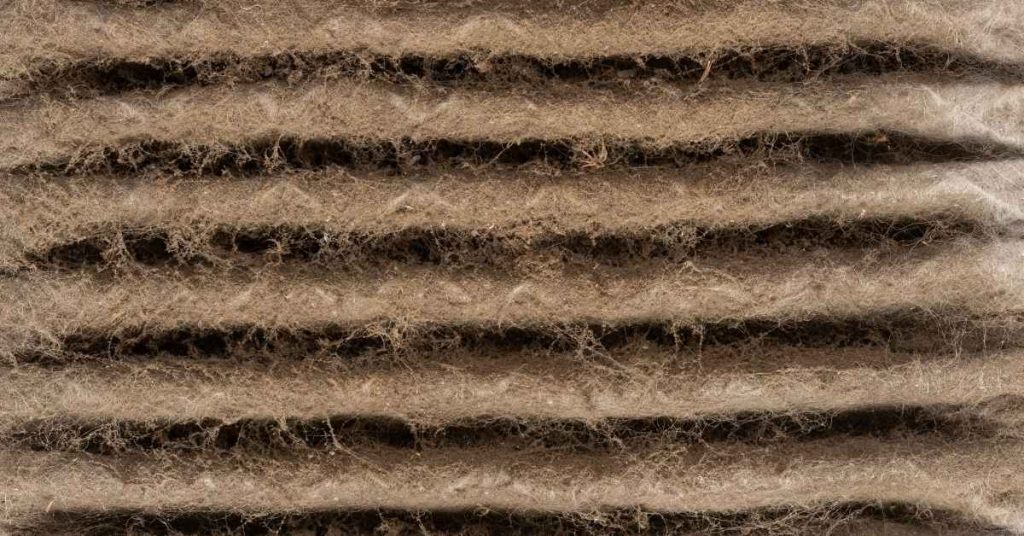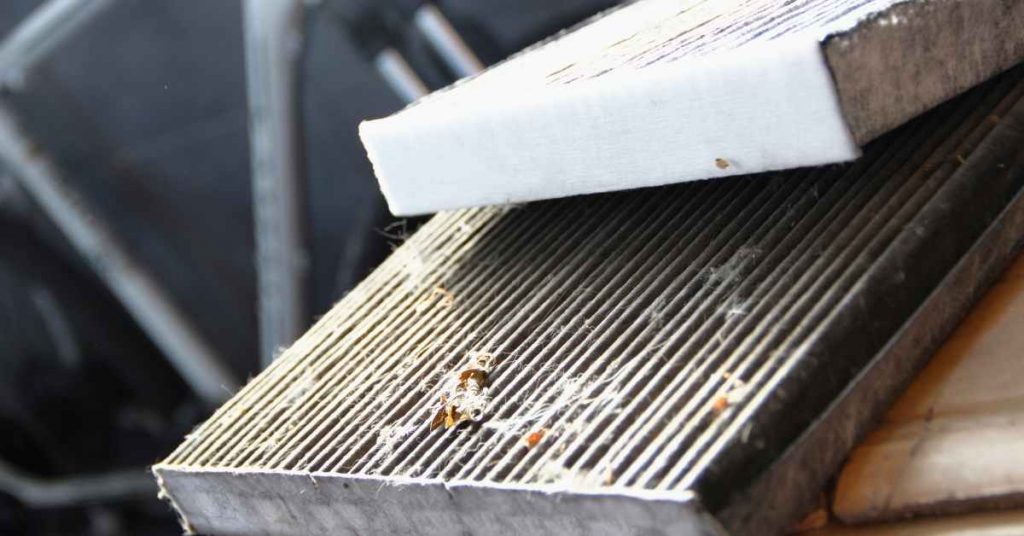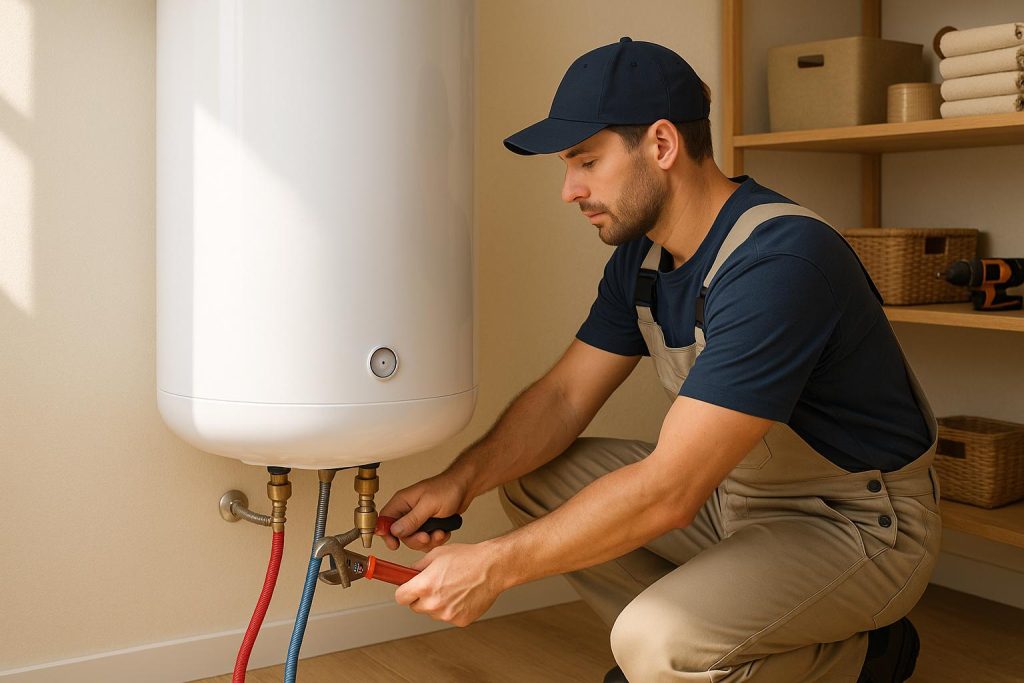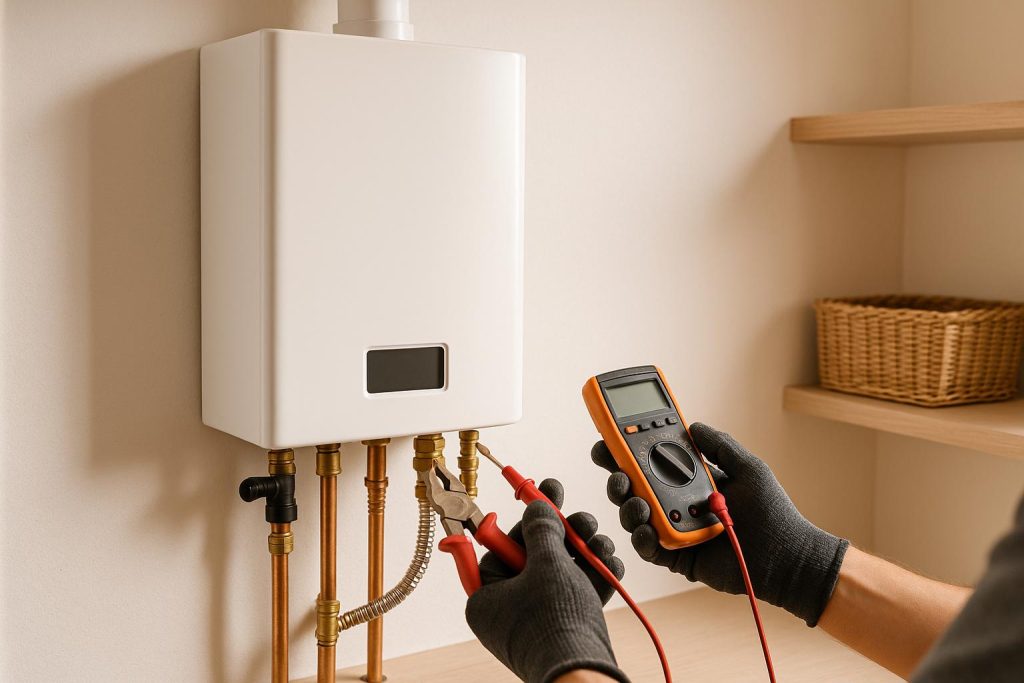
Neglecting to change your furnace filter regularly can lead to a range of problems that impact both your indoor air quality and the efficiency of your heating system. Here’s a summary of what can happen if you don’t change your furnace filter:
- Reduced Indoor Air Quality: An unchanged filter becomes clogged with dust, debris, and allergens over time. As a result, it can no longer effectively capture these particles, leading to poorer indoor air quality. This can exacerbate allergies and respiratory issues.
- Reduced Heating Efficiency: A dirty or clogged filter restricts airflow through your HVAC system. This means your furnace has to work harder to circulate air, resulting in reduced heating efficiency. Your system will use more energy to maintain the desired temperature, increasing energy bills.
- Overworked Blower Motor: The blower motor, responsible for circulating warm air, must work harder to push air through a clogged filter. This increased workload can lead to premature wear and tear on the motor, potentially necessitating costly repairs or replacements.
- Frozen Coils: Reduced airflow caused by a dirty filter can lead to colder evaporator coils in the cooling system, resulting in condensation freezing on the coils. This can cause system malfunctions and lead to costly repairs.
- Shortened HVAC Lifespan: The strain on your HVAC system caused by a clogged filter can shorten its lifespan. An overworked system is more likely to experience breakdowns and require premature replacement.
- Uneven Heating: A clogged filter may cause uneven heating in your home, with some rooms feeling colder than others due to restricted airflow. This can lead to discomfort and the need to adjust the thermostat continuously.
- Increased Dust and Debris: A clogged filter allows dust and debris to accumulate within your HVAC system. This can lead to dirty ductwork, reduced system efficiency, and potentially costly duct cleaning services.
- Higher Maintenance Costs: Neglecting filter changes can lead to more frequent maintenance and repairs for your HVAC system. Regular filter changes are a cost-effective way to prevent these issues.
What Happens if You Forget to Change Your Furnace Filter?

The following are some of the things that will happen if you don’t or forget to change your furnace filter:
1. Increased Energy Bills
A furnace filter is a good thing when it is working properly but it can be a nightmare if it is not changed for a long time. One of the first sign of a dirty and clogged filter that needs to be changed is a sudden increase in your electricity bills.
You see, the air is designed to flow through the filter effortlessly. The air to the furnace is pulled in by the blower, which is powered by an electric motor.
As particles are deposited on the filter, it restricts the flow of air, forcing the blower to work harder to compensate for the reduced flow rate. If you don’t replace the filter at that time, the blower motor will work even harder, resulting in consumption of more energy and thereby an increase in your energy bills.
However, there are lots of appliances in the house (electric water heater, washing machine etc.) which can have the same effect and is therefore hard for the homeowner to correctly deduce the source of the high energy bills.
2. Short-Cycling
In an HVAC system, short-cycling refers to a situation where the furnace keeps coming on and off in quick succession. But why does the furnace short-cycle.
As mentioned, the clogged furnace filter prevents air from passing through it forcing the blower to run for a long time. A furnace that runs for a long time will definitely cause the motor to overheat.
The unit is however fitted with a limit switch (basically a heat sensor) which turns the motor off to prevent it from overheating. As soon as the motor has cooled down, it comes back on. That is how failing to change a furnace filter causes short-cycling.
3. Inadequate Temperature Regulation
As you already know, the function of an HVAC system is to control indoor temperature (either by heating or cooling) and a furnace is central to that function. For that to happen however, air needs to be able to move freely through the filter.
When you don’t change your furnace filter, air will struggle to enter the furnace meaning that your HVAC system will be unable to regulate the indoor temperature.
Anytime you notice a reduction in airflow from the supply air duct and you haven’t replaced the furnace filter in a long time, that could be the source of your problem.
4. Health Issues
When the furnace blower starts to spin, it pulls air from the room, which also carries with it suspended impurities that are then trapped by the filter. If the filter is clogged and can no longer trap more particles, they are likely to move back to the house.
Apart from reducing the quality of the indoor air, health issues like asthma and allergies will worsen since the triggers will be readily available in the air.
There will also be an increases in respiratory infection, sinuses, dizziness, headaches, itchy eyes and/or throat. So in case you have been wondering, failing to change a furnace filter can actually make you sick.
5. Reduced Furnace Lifespan
Although the furnace is fitted with a limit switch to turn off the motor and thus prevent overheating, the constant running of the motor will still cause it to wear out faster than an otherwise moderately running unit.
The end result of that is that you will need to conduct expensive repairs and/or replacements. Failing to change your furnace air filter will therefore reduce the lifespan of your furnace.
How Often Should You Replace Your Furnace Filter?

The rule of thumb is to change your furnace filter after 3 months. However, you many need to change it as frequently as monthly or even once a year depending on some factors.
For instance, the number of people living a house will dictate how often you change your furnace filter. The more the people a house has, the more they bring in dirt from outside and the quicker the filter clogs necessitating a replacement.
Number of pets in a house will also determine if you will change the filter monthly or after 3 months. As you know, pets are always shedding fur and dander which end up trapped on the furnace filter.
Ideally, if you have a single pet, change the filter after 60 days. If you have more than one pet you should change the filter after every 30 days. Homes with no pets should have the filter changed after 90 days.
You will also need to change the furnace filter in your house on a monthly basis if you or another member of the family suffers from allergies or asthma. If not, 90 days is a good time to wait.
Your furnace filter’s MERV rating is another thing to consider. The higher the rating the more often you need to replace it.
Furnace filters also come in different sizes (thickness). Thicker filters don’t need to be replaced as often as the thin filters. Here is how often you should replace furnace filters in accordance with the size:
- 1 to 2-inch furnace filter – 1 to 3 months
- 3 to 4-inch furnace filter – 6 to 9 months
- 5 to 6-inch furnace filter – 9 to 12 months
In homes where the HVAC system is used heavily, the furnace filter will clog at a faster rate than a home where the HVAC system is moderately used. In such a home, the filter will need to be replaced more often.
To make sure you are not caught off-guard, HVAC technician recommend changing HVAC filters at the beginning of each season (since there are 4 seasons in a year).
Also, I would advise that you remove and inspect your furnace filter every month. Have it changed if it is dirty. Remember to always turn off the furnace before removing the furnace.
If you are having problems locating your furnace filter, check out this post.
Signs You Need to Change Your Home’s Air Filter
So, what are the tell-tale signs that your furnace filter is dirty and that it needs to be changed? Here are some of them:
- Increase in energy bills
- Short-cycling of the furnace
- Reduced airflow
- Worsening of asthma and allergies
- Burning smell in the house (due to blower motor overheating)
- Poor quality of indoor air
- An increase in respiratory infections
Conclusion
And basically those are the things that will happen if you don’t change your furnace filter. Make sure that you replace your furnace filter at least quarterly to avoid these problems.






